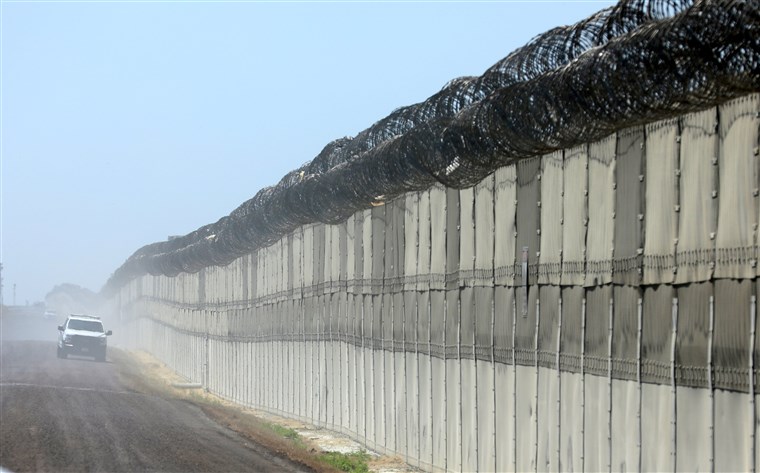My own personal disaster with retirement
When I was 32, I retired. It didn’t end well. This is my retirement story. Take from it what you can. Life isn't experienced in some cubicle somewhere, but the majority of people I talk to who are embracing FIRE (Financial Independence Retire Early) don't really understand what life looks like on the other side of the retirement line and why they might want to rethink their goals.

When I was 32, I retired. It didn’t end well. This is my retirement story. Take from it what you can.
In 1990 I had found some luck working as a contractor in the software development industry in southern California. I had peddled my resume around to a number of agencies that placed contractors and one set me up with an interview with a startup in the medical industry. They paid pretty well, so I took the gig. I thought it was going to be a 6 month gig, then I’d get back on the mercenary contractor train and find the next client.
However after I landed the gig, and started working there, I found myself really enjoying the culture of a startup. I was the 180th member of the “team” there. That’s a lot of people, but considering that most of them were scientists in lab coats and production workers, I was only one of a couple of dozen computer people in there. It was a small and vibrant family, with a sense of things going somewhere. That company was called “Amgen”.
Today Amgen has over 40,000 employees, is the largest biotechnology corporation in the world. I remember when it was nothing more than a startup, and we had no actual approved products. But the management liked me enough to offer a full-time job after my contractor term expired, and I took it. It was a risk to me because I hate the shackles of employment. But I loved the friends I had made there, and we had relocateed from living and working in Seattle for this, and I needed to recover the moving costs I had forked out. Amgen offered me a retrospective relocation package which would allow me to recoup those costs, along with a competitive salary and the financing of a downpayment for a house in southern California. Those things resonated to me, although they also offered this thing I had no idea about called “stock options”. Quite a lot of them, but when the stock of a company is pretty low, and you get the right to buy a pre-allocated lot of stock at that price, but maybe five years later, you are punting on a future. Most times those punts don’t work out, so I was more interested in the housing financing, health insurance and relocation payment.
Then one day the FDA announced they had approved the first product of Amgen. It was called “Epogen” and later it became quite well known as “Epo” that was the steroid used in the doping scandals of the Tour De France that unseated Lance Armstrong. Ironically, Amgen sponsor the Tour de California cycling race each year. Go figure.
Yet Amgen never had the approval to sell the drug outside of the indication of supporting dialsis treatment. They punted that this was the big use case for Epogen. They were right. Over 90% of the use of Epogen was to raise the red blood cell count by re-programming the human body to do it naturally. Biotechnology, as I learned working there, was the future and would fundamentally change the pharmaceutical industry. It seems that Wall Street agreed and Amgen stock went crazy. The stock went up and up and up, then split, then went up and up and up, then split, etc. In the end, my stock options were worth a small fortune. But you had to stay employed there for years to “vest” the options. They wouldn’t give them all to you at once. Each year you stayed there, you got more, and the ones that you had vested so you could exercise them. That meant you could buy the stock at that original price, and then sell the stock immediately at the market price, and cash out the difference.
After about five years of working there, the glamor of a startup wore off for me. When I left Amgen, there were about 3,800 people there and although it was growing, I’d done as much as I could to help architect their IT infrastructure and it was time to move on. Then one day I got a call from Australia that my mother had a health event and needed care. I was on a plane within 24 hours to see what was going on.
I found her in hospital - she had dementia, and it had progressed to the point where she didn’t really know anything or anybody anymore. Sad to see with your own eyes, but it was time for me and my wife to move back to Australia. My wife, at the time, was an American who I met when vacationing in Hawaii and we fell in love and got married. The choice to leave Australia as a young man in my early 20s was hard, but I knew that my future lie outside of my country of birth. To return back to it after my adventures in the USA was hard. But I had to attend to my mother.
I resigned from Amgen, and cashed out the stock options. It felt like a fortune. I was 32 years old. I never had to work another day in my life. Australia, at the time, was much cheaper to live than the USA, had socialized health care, social welfare, and affordable housing. We bought a cottage near the center of my home city of Adelaide, and began building a life there. I didn’t have to work. But at the age of 32, I still wanted to conquer the world. I built a recording studio and started to offer my recording production & engineering skills that I had groomed in Hollywood as I had been lucky enough to be in a band outside of my normal day job that did pretty well there, and had met a lot of people in the recording business that eventually took me under their wings and taught me the ropes of audio engineering. Since I was a technically inclined person, I took all of that information in like a sponge. I therefore had something to offer the people of my home town on my return.
But even with that, I was bored out of my mind. And the worst part of this was that my wife had become disillusioned with our marriage and my future. She saw that I had moved us away from the USA due to my family obligations, but that it seemed like it was the end of a journey. My adventure ended when I returned home to Australia in her eyes and it was enough for us to separate and eventually divorce. And with the divorce came the loss of half of our net worth, forcing me to sell the freehold house we had, and re-mortgage it back and after investing all that money to build the studio and have some sort of future, now the loss of half of my net worth combined with now mortgaging what I had bought, meant I was no longer able to sustain myself at the same level as a “retiree” at the age of 32.
Lessons learned
I realize that I had fallen prey to thinking that escaping the 9-5 rat race and retiring was the ultimate goal, and yet I neglected to recognize my own needs to progress at that age. At the age of 32, it was time to conquer the world. Not escape from it. I didn’t take into consideration the goals of my own wife and that didn’t end well. I didn’t realize that life doesn’t stop when you retire - that you yearn for new adventures and that often those adventures require capital to start, and you are still relying on cashflow to get through each month. Australia started to become more and more expensive place to live, and although I eventually (about 4 years later) left Australia after realizing my mother’s care was in place and that she was effectively at the end of her life, and she eventually passed away, I returned back to the USA before my green card expired, and rebuilt my life from scratch again. Just as I had landed with nothing in 1989, I returned back to the USA ten years later, with basically nothing again. All my winnings from the Amgen experience had gone, so I had to start again.
I realize now the mistakes that I made, and that I paid the price for it. But as Steve Job’s book title, “The Journey is the reward” and that is so true. If you exit the industry that you are passionate about and think that because you had an early win, that you are entitled to retire, you have lost. You ended the journey and there really isn’t any reward. Consider someone who is forced into retirement at the age of 65. They would do anything to have more years - more chance to continue the journey. More chance to be engaged on a path that they love. But that is taken from them in place of a gold watch, money to sustain themselves at a much lower quality than they had previously and they get their time back. But at that age, you don’t have the energy to start a new chapter. You become conservative and you don’t take risks. Society has given you one chance to get it right and your future is pretty bleak. You will die eventually and the power of the mind to keep you healthy and active has been limited. Some have the mental fortitude to get through this, but many do not.
Thankfully at 32 I had a future ahead of me, and adventures that would make my past look pretty amateur. I may have never stumbled into my new adventures if I had not got back out there and embraced the new and emerging technologies and the new chapters of life that they presented to me. I realize that “retirement” is evil - I don’t want to ever retire. But I don’t want the shackles of living a constrained life, tied to a desk and someone else’s vision and wealth. I want to be that person with the vision - my own vision, and I’ll take the risks to get there. The one thing I learned that was far more valuable than a stack of cash, was the skills to see opportunity and the business accumen to create enterprises that pursued those visions. More risk, but more rewards. And more adventure.
Lessons from my father
You’d think I should know thiis. At the age of 21, I had to bury my father. He died of a heart attack, and I had to take care of everything as the only son in my family. He was 67 years old, and he retired two years prior from a long career with a major building materials manufacturer in Australia. He was a dedicated employee, and he put aside his own income to fund me through private school - school that I eventually rejected and left early to begin my own life in business.
I remember visiting my family after he retired. He played golf, so we had many opportunities to spend time together on the golf course. It was special - a time when you get to know the man, rather than the father. You talk about real things walking from one hole to another. Things that were hard to discuss at home. He showed true respect for what I was doing, and I shared that with what he had done. He was my hero, although I didn’t realize how short that time would be and how important the door that I would walk through in dealing with the post-father experience was going to be for me.
You see, he had given up 40 years of his working life to a corporation that made roofing shingles. Billions of roofing shingles. Pretty boring, but he loved being a roofing foreman. Outside, the comaradarie with other workers, etc. But none of them knew that they were dancing with the devil. You see the building materials they were using were made from asbestos, and all of them got mesotheleoma, cancer, etc. as did my father. He developed lung cancer from years of exposure to asbestos which was the root cause of a heart attack that killed him. He gave not only his working life but his physical life to a corporation, and his retirement of 2 years was not pleasant at all. Given the choice, he would have remained working because he enjoyed it.
I drew the immediate comparison of his 2 year retirement experience with why I never should retire. Then I broke that rule at 32, and lost my family and my future. It almost killed me in a horrific car accident that occured from a trip to escape the darkness of my situation in 1995. After nearly losing my liife, I delved deep into myself to realize that I had a future and I needed to embrace it. Someone gave me a second chance and I was not going to screw it up. The end result was that I remarried, had a wonderful daughter and returned back to the USA to return to the journey which eventually led me from nothing to financial independence.
But this time it was different. There is no “retirement” word ever spoken in our house. It is a toxic statement. It is wonderful to have the chance to travel the world (I’m in Berlin Germany as I write this at a conference I’ve always wanted to be at, but needed the financial freedom to choose to do those things). I realize now that my story has meaning. It doesn’t dictate the future of others, but maybe it can be a reference point that those looking at retirement as some sort of mythical goal might want to reconsider that.
Financial independence - YES! But not early retirement. We need a purpose in our life - a path to follow, a journey that is the reward. Take that away, and you need to replace it very quickly. I’m not saying you will have my experience or the experience of my father. But you need something that is meaningful to you that you replace your work with. If you were working without meaning, then you have to find something that gives you meaning. If you know what that is, and you need to be able to survive on less money to embrace it, then that is your goal. If you don’t know what that is, you won’t find it sitting on a beach in Thailand or Mexico. You need to be able to participate and find things that make sense to you. There is no progress without risk, and if you don’t have cashflow coming in, you can’t take risks. Hence you wither and die quickly.
Summary
I would never want to see anyone go through what I have, but the extreme ups and downs of my early years defined me. They taught me that I can get through most obstacles, from fatal car accidents to family death to divorce, etc. My inner strength is there and it gives me the confidence to take on the world. But it also taught me that the world can be a bitch sometimes and you need to mitigate risks if you want to succeed. Risk management is a science and if you have clarity of mind, you can do it. Then you get the benefits without the downside.
It isn’t a perfect science. I almost lost everything (again) in the 2008 global financial crisis as most of our net worth was in real estate. But rather than give up, we had diversified our real estate across multiple countries so we could sell asssets for massive profit in one, and use it to bolster losses in another region. And with that, we could pick up the toxic assets of others than had to declare bankruptcy and give back their houses to banks, to eventually see a 5x increase in value years later. Taking those risks at a time when it felt like the world was crashing around me took deep internal reaching into what I had learned from adversity and to bring that courage forward - courage that eventually turned out to be worth 10x what my Amgen windfall was.
You see, it wasn’t about the money. It was about what I learned in life and that could only come from participation. So that when the opportunity in the future presented itself, masked in other people’s disaster, that I could see beyond that and see that there will always be a positive future. Just as there was when I was 32 and I lost everything. There is always a positive future, but until you go through that life experience, you haven’t learned anything. To give up the journey in seeking out early retirement is saying to yourself in the mirror, “I know all I need to know from my participation in work that I don’t need it anymore’. Yet when the future comes and you are faced with your own adversity, do you have the skills to get through it? Or will you be a victim to it, lose everything you worked hard for and not be in a position where you can recover and see a positive future?
There are no short cuts in life. You can’t accellerate life to get the winnings. You have to live it. I only hope that you live it unconstrained and that you have goals not to “retire” but to find your freedom and be able to have your own adventures (some of which may require capital and risks) and that you developed the skills to manage risk because everyday you wake up in your life, there are risks. Never sell out your time to anyone but most importantly never sell out your time to yourself in pursuit of some faith based goal of early retirement. That’s my position - I hope you can see from these experiences how I arrived at that conclusion. Take from it what you can and good luck.




Reply | Quote and reply
Reply | Quote and reply